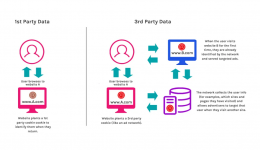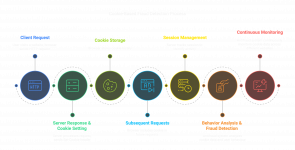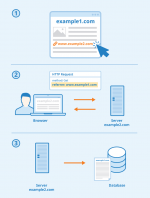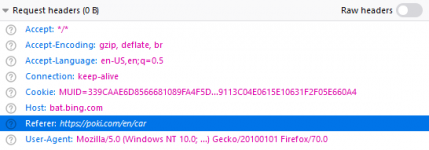d0ctrine
Diamond
- Joined
- 17.08.24
- Messages
- 107
- Reaction score
- 4,263
- Points
- 93

One of the most overlooked aspects of carding is the strategic use of cookies and referrers. Sure, log buyers might understand this shit on a surface level treating it like some checkbox to tick off. Meanwhile, the rest of you motherfuckers probably go blank-faced at the mere mention of these terms.
But I'm here to tell you something that might blow your mind: your cookies and referrers are just as critical as your proxies. Think about it - when's the last time--as a legitimate shopper--have you landed directly on a product page without clicking through the site first? Real customers don't shop like that, and antifraud systems know it.
By the time youre done with this guide, you'll understand why showing up to a site with no cookies or referrers is like walking into a high-end store wearing a ski mask. [[[placeholder image: Image of someone in a ski mask trying to enter a fancy store]]] You'll learn how to make your carding sessions look as natural as any legitimate customer's and how to stop shooting yourself in the foot with rookie cookie mistakes.
Cookies
Ever wonder why websites remember your shit even after you close them? That's cookies - tiny data files that started as a convenience feature but morphed into digital tracking devices. These fuckers were supposed to just save your shopping cart and login info, but corporate greed had other plans.
Some dickhead in marketing realized cookies were perfect for stalking customers across the internet. Now these data packets arent just saving your cart - theyre recording every goddamn thing you do online. Every product you drool over, every link you click feeding into massive databases that profile your browsing habits like some digital FBI dossier.
For us carders, this tracking bullshit created a massive problem. Modern antifraud systems dont just check your card details anymore - they dissect your cookie patterns like a forensics team at a murder scene. They're hunting for proof that youre a real customer with legitimate browsing history.
Take Stripe Radar, for instance. This sneaky bastard injects JavaScript into virtually every website that uses Stripe as a payment processor (which is a fuck-ton of sites). Since Stripe's tentacles reach across half the internet they can instantly spot when a transaction comes from a "fresh" browser with no cookie history. No previous interaction with other Stripe-powered sites? That's a massive red flag.
For example, here's the typical HTTP log when you arrive at a Stripe-powered site after just about 5 seconds:
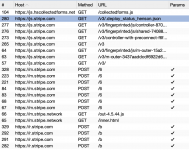
All of these request include your cookies, so they know and can see which sites you are browsing, not just the site you are currently hitting.

This problem gets amplified when youre working with residential proxies. Even with "sticky" residential proxies, who's IP addresses are unstable and finicky - changing addresses when you least expect it. So when Stripe sees your cookies bouncing between different IPs like a pinball your fraud score shoots through the roof. Each IP change makes your cookie profile look more suspicious, and before you know it, your transaction is getting declined with no explanation whatsoever.
Referrers
Referrers started as a simple way for websites to track where their traffic was coming from - basically digital word-of-mouth analytics. But just like cookies these innocent little data points evolved into something far more complex and dangerous for carders who don't know what theyre doing.
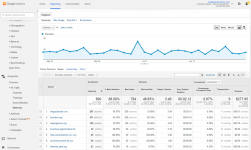
Every time you click a link, your browser tattles to the destination site about where you came from. This isn't just some meaningless technical detail - its fundamental to how real humans navigate the web. When's the last time you typed a full product URL directly into your browser? Never, because thats not how actual people shop online.
Real customers start their shopping like normal fucking people - on Google or some shopping site. They search "where to cop jordan 1s" or "best price PS5" then click through whatever pops up. Their referrer data tells a story - from google.com/search through price comparison sites, maybe some YouTube reviews before finally pulling the trigger.
Legitimate shoppers browse like they've got ADHD on cocaine. After that first search, theyre everywhere - comparing prices in 20 tabs clicking random Instagram ads, reading reviews checking if their fat ass fits the size chart. Their referrer trail looks like a drunk spider's web because thats how normal people actually shop.
Systems like Forter have turned this behavior analysis into a fucking science experiment. They're not just checking your referrers - they're building complete psychological profiles of your shopping habits. Their AI watches everything from your mouse movements to your typing speed, but most importantly they expect to see that chaotic inefficient browsing pattern starting from normal entry points.
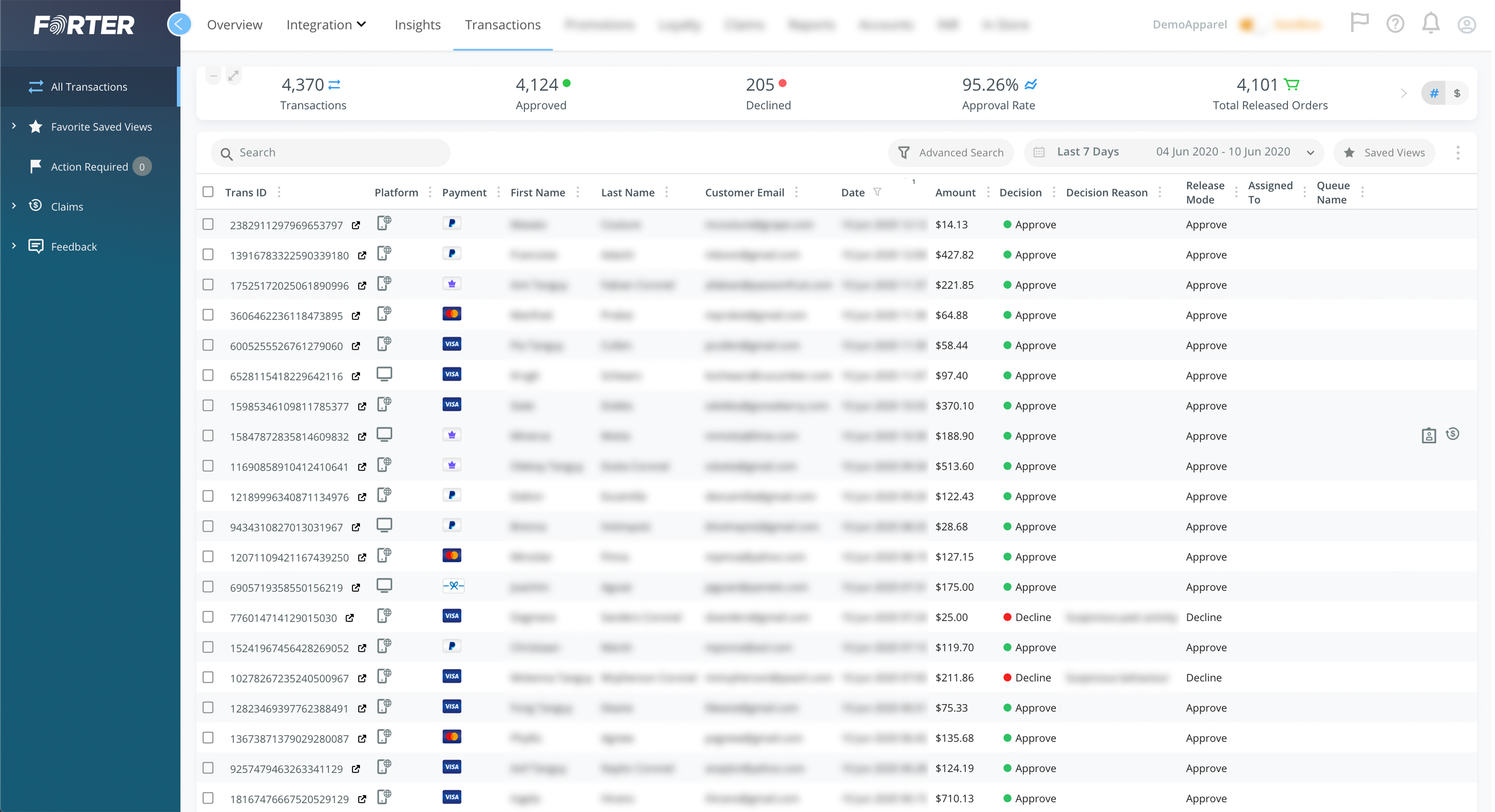
Landing straight on a product page then blazing to checkout? You're basically wearing a "FRAUD" neon sign. Real customers leave their digital DNA everywhere - browsing categories comparing shit, reading reviews checking delivery costs to their mom's house. Each random-ass action makes your session look more legit but it all starts with those crucial first referrers from search engines and shopping sites.
Learning Your Lessons
So, how do you play this game smarter? It's about warming up your digital fingerprints. Think of it like this: you wouldn't walk into a bank robbery without casing the joint first right? [[[placeholder image: Image of someone casing a bank, looking around suspiciously]]] Same shit applies online.
For cookies you gotta build up some history. Antidetect browsers like Linken Sphere get this – they've got features to automatically "warm up" your profiles. Basically, its like sending your digital ghost to wander around the internet for a bit hitting up random sites generating some cookie crumbs before you go for the score. If your antidetect doesn't do this automatically, you better start doing it manually. Spend some time browsing like a normal fucking human before you jump into the site youre bout to hit.
And referrers? Dead simple. Make it a habit a goddamn reflex: always go to the site you're hitting via a Google search first. Targeting a new Lenovo laptop? Don't just type in
lenovo.com like a moron. Google "lenovo laptops," click on a search result then navigate to the product page. This simple step makes your referrer look legit. It tells the site you came from Google just like a normal customer. It's a tiny detail but antifraud systems eat this shit up.
Cookies and referrers aren't some magic bullet. They won't turn a card into a golden goose overnight. And if youre just hitting small-time shit honestly it might not matter as much. But when you're stepping up to high-value transactions, ignoring this stuff leaves plenty more of success out the table.
Modern antifraud isn't about black and white yes or no. It's a goddamn scoring system. Every little thing you do online adds or subtracts points from your "legitimacy score." No cookies, shit referrers? You're starting in the hole. But clean cookies and natural referrers? Youre giving yourself a fighting chance. If you're getting declined 40 out of 100 times cleaning up your cookie and referrer game could easily cut that failure rate in half. Think about that shit. Half. For doing something this simple.
So, stop being lazy. Start thinking strategically. Cookies and referrers are your digital breadcrumbs. [[[placeholder image: Image of digital breadcrumbs leading to a treasure chest or loot]]] Lay them down right and you might just get away with the whole goddamn loaf. Fuck it up, and youll be left with crumbs and a face full of decline notices. Your call. d0ctrine out.



